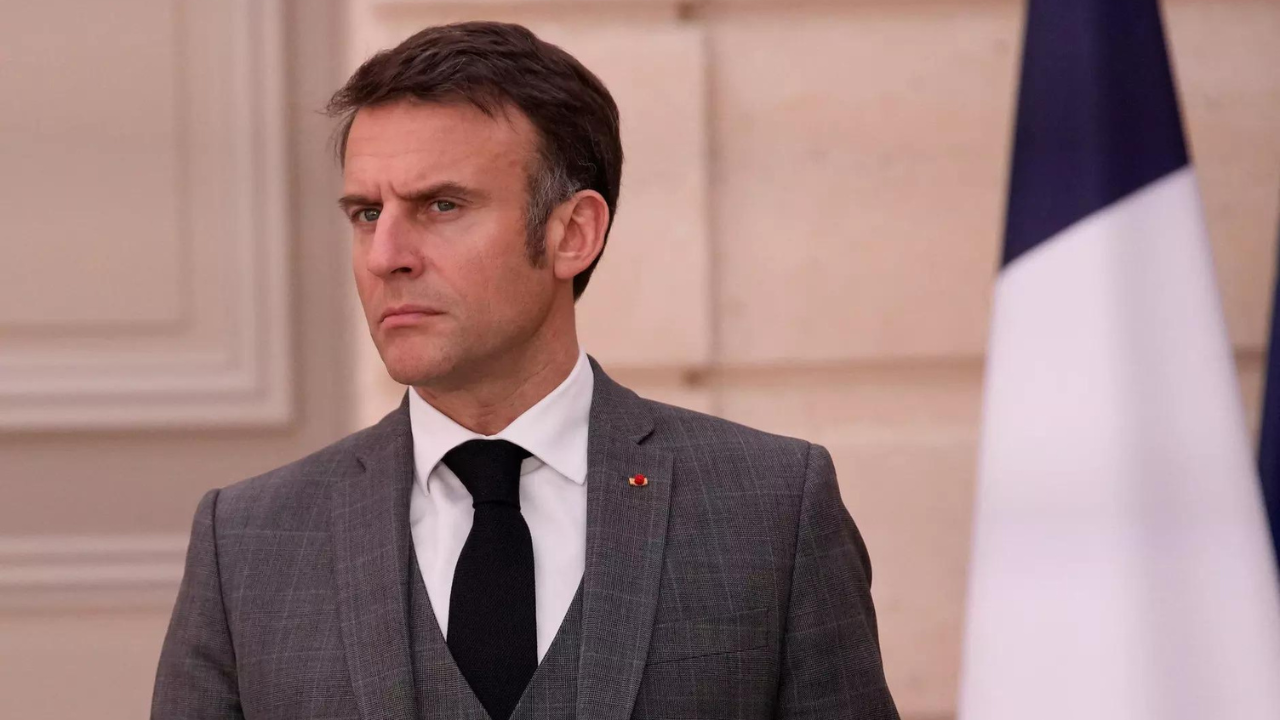PARIS: French President Emmanuel Macron flew to New Caledonia Wednesday in a bid to find a political solution to the riots that have rocked the French archipelago in the southwestern Pacific Ocean, some 16,000 kilometers (10,000 miles) from metropolitan France.
The unrest has raised new questions about Macron’s handling of France’s colonial legacy. There have been decades of tensions between Indigenous Kanaks, who seek independence for the territory of 270,000 people, and descendants of colonists and others who settled on the island and who want to remain part of France.
The unrest erupted May 13 as the French legislature in Paris debated amending the French Constitution to make changes to New Caledonia voter lists. Opponents fear the measure will benefit pro-France politicians in New Caledonia and further marginalize the Kanaks, who once suffered from strict segregation policies and widespread discrimination.
Macron is expected to land Thursday morning in New Caledonia, where the presidential Elysee Palace said that he will focus on restoring order and facilitating dialogue among local leaders, and to discuss the significant reconstruction needed after violence has caused damage estimated to be in the hundreds of millions of euros (dollars).
Macron’s objectives also include expressing solidarity with the territory’s inhabitants, thanking security forces, and meeting with local leaders to discuss reconstruction and political issues. Macron has long been actively engaged in New Caledonia’s political landscape, particularly in facilitating dialogue between pro-independence and pro-France factions. His efforts culminated in a 2018 referendum in which New Caledonians voted to remain part of France by a narrow margin.
The New Caledonia High Commission Wednesday reported that 1,050 reinforcements from the gendarmerie, police, and civil security have been deployed, over 90 roadblocks have been dismantled, more than 280 rioters have been arrested, 84 police officers and gendarmes have been injured, and no new fatalities have been reported. Six people have died in the violence so far, including two gendarmes.
The unrest has raised new questions about Macron’s handling of France’s colonial legacy. There have been decades of tensions between Indigenous Kanaks, who seek independence for the territory of 270,000 people, and descendants of colonists and others who settled on the island and who want to remain part of France.
The unrest erupted May 13 as the French legislature in Paris debated amending the French Constitution to make changes to New Caledonia voter lists. Opponents fear the measure will benefit pro-France politicians in New Caledonia and further marginalize the Kanaks, who once suffered from strict segregation policies and widespread discrimination.
Macron is expected to land Thursday morning in New Caledonia, where the presidential Elysee Palace said that he will focus on restoring order and facilitating dialogue among local leaders, and to discuss the significant reconstruction needed after violence has caused damage estimated to be in the hundreds of millions of euros (dollars).
Macron’s objectives also include expressing solidarity with the territory’s inhabitants, thanking security forces, and meeting with local leaders to discuss reconstruction and political issues. Macron has long been actively engaged in New Caledonia’s political landscape, particularly in facilitating dialogue between pro-independence and pro-France factions. His efforts culminated in a 2018 referendum in which New Caledonians voted to remain part of France by a narrow margin.
The New Caledonia High Commission Wednesday reported that 1,050 reinforcements from the gendarmerie, police, and civil security have been deployed, over 90 roadblocks have been dismantled, more than 280 rioters have been arrested, 84 police officers and gendarmes have been injured, and no new fatalities have been reported. Six people have died in the violence so far, including two gendarmes.

